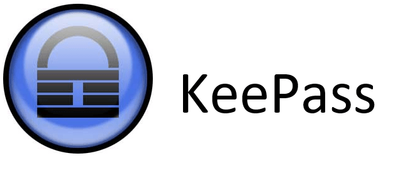The Best Password Managers and Why You Should Use One
Learn about the best password managers, what a password manager is, how they work & why you should be using one. LastPass, 1Password & KeePass make it simple.

How many digital accounts do you have?
How many of those accounts have a secure password?
Creating, storing and managing passwords can be tiresome. Ensuring that each of those passwords are unique and conform to the strong password standards of containing a capital letter, lower case letter, number and special character can be even more mind-numbing.
Password managers combine all of these steps into a simple package and make it easier to have secure passwords for each of your digital accounts.
But which are the best password managers? what is a password manager? How do they work and why should you be using one to simplify your life?
What is a password manager and how does it work?
A password manager is software or an app that acts as a digital vault that keeps all your passwords secure.
The first step in configuring your password manager is to create a master password.
The master password is used to unlock the password manager. Since this password opens the vault to all of your other passwords, this password should be the most secure and tightly guarded.
Password management software can be broken down into 3 main components:
- Password Creation:
- Password managers help you generate strong passwords based on the criteria you select. You tell the program the type of characters you want included, how long you want the password to be and the password is automatically generated.
- Password Storing:
- Instead of having to write down or remember each of these automatically generated passwords, the password manager acts like a vault, keeping your passwords safe using methods like encryption.
- Password Distribution:
- Password managers allow for form data and login fields to be automatically populated in webpages and other areas. Additionally, password managers allow for the manual retrieval of stored password as well.
Why you should use a password manager?
Speed
Gone are the days when you have to remember your passwords. The time spent on failed password attempts, password resets or finding that list with all of your passwords on it are over.
Today, password managers will autocomplete forms in webpages and allow you to copy-and-paste passwords from the password manager to the service you’re trying to login to; both time saving options.
Security
One of the most important features of password managers is the security.
The password vaults or databases that hold your passwords are encrypted with industry standard algorithms such as AES.
Your passwords are often salted before being hashed prior to being stored for added security.
Additionally, password managers often support integration with software or hardware two-factor authentication mechanisms like the Google Authenticator app or Yubico hardware token.
For added flexibility, password managers provide the option to set whether form data and passwords are filled automatically or upon clicking a hot-key. When using a mobile app versions of popular password managers, there is often integration with the smartphone's built-in fingerprint scanner to confirm form completion. These features provide an added layer of protection against malicious websites using hidden forms.
Lastly, and maybe the most obvious factor, using a password manager eliminates the need to write down passwords or create easily memorable ones, leading to stronger passwords and eradicating the risk of losing the master list.
The Best Password Managers
There are several password manager options available, each with their own unique benefits.
The options below have a great blend of security, simplicity and public adoption, making them a great choice for anyone thinking about switching to a password manager.
1 - LastPass

Website: https://www.lastpass.com/
Price: Free and Paid
LastPass, used by 10+ million people globally, is a popular password manager, password generator and password vault.
The software uses strong AES-256 encryption and includes options for two-factor authentication.
LastPass creates easy to use products for all popular platforms including Windows, Mac and Linux.
There are browser extensions for Internet Explorer, Firefox, Chrome and Opera in addition to mobile apps available for iOS, Android and Windows Phone.
2 - 1Password

Website: https://1password.com
Price: Paid
1Password is a password manager that is loved and used by millions people.
Like many password managers, 1Password allows you to store everything from online accounts to social security numbers securely within the software.
Conveniently, you can use tags and search to quickly find what you're looking for on any of your devices.
With security being the focus for this type of product, 1Password uses AES-256 encryption and PBKDF2 key derivation to ensure that no one but you can see into your data.
Furthermore, 1Password is the first and only password manager to use WebCrypto, the next generation standard from the W3C.
1Password creates software for Windows and Mac along with apps for Android and iOS.
There are also browser extensions for Microsoft Edge, Firefox, Chrome, Safari and Opera.
3 - KeePass:

Website: http://keepass.com/
Price: Free
KeePass is a free, open source and portable password manager and password generator.
Although it’s completely free, there is no shortage of security features and robust functionality.
KeePass uses AES encryption to encrypt its password databases and SHA-256 password hashes.
The software supports password groups for sorting passwords, you can drag and drop passwords into most windows or use a hot key to automatically insert information.
KeePass can import data from a variety of formats like CSV, while the password list can be exported to formats such as TXT, HTML, XML, and CSV.
There are downloads available for Windows, Linux, Mac OS X with ports available for Android, iPhone, iPad, and more.
Conclusion:
Password managers are purposely built to securely store your passwords and other sensitive information while making it easy to populate that information on web forms and other places it may be needed.
Which password manager will you choose?

